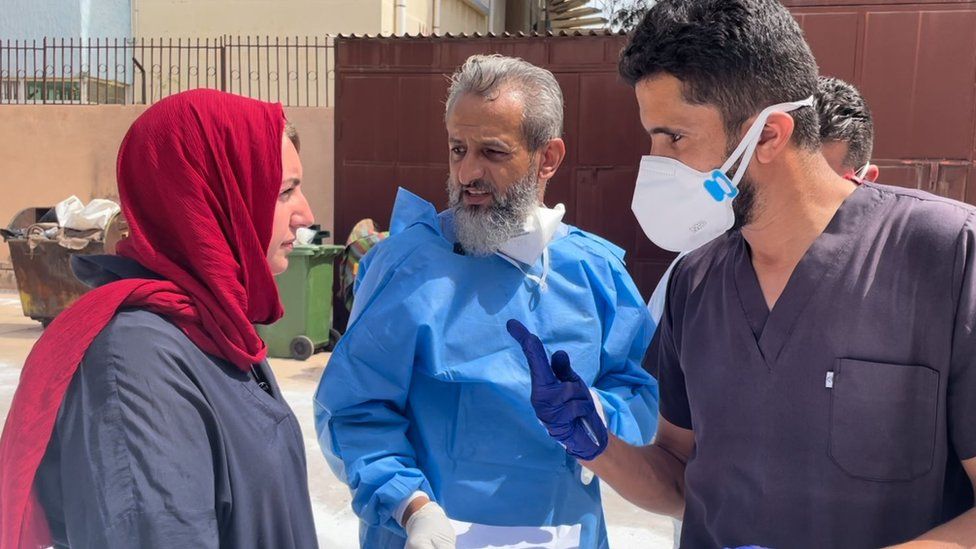-

-
-
Loading

Loading

Warning: This story contains distressing details. In the city of Derna, located in eastern Libya, a masked doctor is seen inspecting a body bag in the hospital car park. He carefully examines the body inside, determining its age, sex, and length. The man inside has reached the putrefaction stage due to being in the water for so long. This task of identifying and documenting the victims has become essential yet distressing. The man's body, unrecognizable after being in the sea for a week, had washed ashore that morning. Skilled professionals examine the body in search of identifying marks and collect a DNA swab, in case there are any surviving family members to claim him. According to the UN's Office for the Co-Ordination of Humanitarian Affairs, over 10,000 people are officially reported missing. However, the Red Crescent has cited different figures. The exact death toll remains uncertain, but it is clear that the magnitude of this catastrophe is immense. Mohammed Miftah is certain that his family is among the victims. When he went to their home after the floods, he found that it had been washed away. He has had no contact with them since. Miftah shares a video with me, showing the rising floodwaters engulfing his house. In the midst of the chaos, a car gets stuck and blocks the entrance. He recalls the fear he felt and the disappearance of his neighbors who were waving flashlights. This loss hits him the hardest. Meanwhile, as international aid begins to arrive, the Health Minister of Libya's eastern government reports that four Greek rescue workers died in a road accident on their way to Derna. Fifteen others were injured. France, Italy, Kuwait, and Saudi Arabia have also sent additional supplies. However, the challenge lies in ensuring that these resources are distributed efficiently and fairly. Abdullah Bathily, the Head of the UN's International Support Mission in Libya, emphasizes the need for a transparent mechanism to manage international donations, considering the difficulties of coordination between the internationally recognized government in Tripoli and the eastern Libyan government. Amidst the devastation in Derna, there are glimpses of hope. Colorfully scattered clothes are seen on one street corner, and across the road, survivors form long queues to receive fuel. A man arrives with a box of warm scarves and tenderly places it at the feet of an elderly woman. She smiles and begins to choose one. These acts of kindness represent Libyans helping each other during one of their darkest moments of crisis.